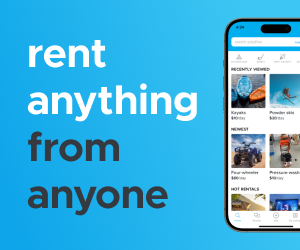Local Super Bowl Ad Spotlights Brain Injuries
I’m one of those sports ball neophytes who’s more interested in Super Bowl commercials than the game itself. And obviously, the NFL would rather people talk about deflated footballs than some of its messier problems. But this year’s big game ads did tackle some heavier topics, from the chilling “NO MORE” ad aimed at domestic violence to Nationwide’s ill-advised dead kid commercial.
In Hawaii, viewers saw an ad that took a remarkably direct swipe at the NFL during the NFL’s biggest day. And it featured a local activist and friend of mine.
I first connected with Lindsea Kemp Wilbur as the first Hawaii Geek Meet was coming together in 2008, and she would go on to become a familiar face at local tech meetups like Manoa Geeks. She was intensely curious and constantly motivated to get involved, particularly where the internet and technology would intersect with history and culture.
She was working to form a Hawaii chapter of the Internet Society in 2012. The next year, she traveled across the country with The Millenial Trains Project, and last year she linked up with the local maker movement. She’s also a research affiliate for the Institute for the Future.
She was very busy, and there were undoubtedly many other projects among these on her plate. But her latest is one that’s very close to her heart: the John Wilbur Legacy Fund, which she and her sister Dione Wilbur Smith founded in memory of their late father.
John Wilbur was a professional football player, who played with the Dallas Cowboys and the Washington Redskins, even playing for the latter in the Super Bowl in 1971. He was also an avid rugby player, from his college days at Stanford to Hawaii’s oldest rugby club.
But all that hard-hitting sports took its toll, and the Wilbur family rallied around their celebrated patriarch as his health deteriorated. He died in 2013, and there was no question among his friends and family that traumatic brain injuries like Chronic Traumatic Encephalopathy (CTE) shortened his life.
Notably, John Wilbur’s family opted out of a $675 million settlement reached last year between the NFL, in which 4,500 former players sued the league for its handling of concussions. More than 200 others also opted out, with many declaring the settlement “pure evil.”
“For years the NFL has hidden the fact that helmets cause more damage that they prevent,” Lindsea says in the local Super Bowl ad. “My dad suffered from dementia and from hits on the head he got playing football… we can learn from what happened to my family and make the game safer.”
She asks anyone who has suffered a sports-related concussion or their families to get in touch.
With the ad paid for by local law firm Galiher DeRobertis Waxman — a personal injury law firm with extensive experience in class action and other lawsuits related to asbestos and mesothelioma — I would guess another lawsuit is in the works.
While the John Wilbur Legacy Fund supports the view that sports provide important opportunities for athletes and are a “valuable part of human experience and society,” the organization is dedicated to protecting the “right to life, liberty and security of athletes.”
And in addition to supporting research focused on sports and athletics, the Fund also wants to raise overall awareness of the risks of concussions and CTE. Two weeks ago, the fund joined with the Hawaii Concussion Awareness Management Program (HCAMP) and Galiher to put on the “Neuro-Huddle,” bringing together former local athletes and coaches, scientists, family members and fans.
Jake Dunegan, also with the Institute with the Future, recapped the event, saying it felt like an intimate family gathering, but also like a “sobering scientific proceeding.”
“The more we find out about head injuries caused by football, the worse the story gets, and the greater the fear becomes that we might be seeing just the front edge of a coming tsunami of health issues, lawsuits, and threats to the game as its played today,” Dunegan writes. “If we don’t take some kind of stand, or force some systemic positive action, not only will we lose the game, we’ll deserve to lose it.”
The Neuro-Huddle was only the first in what is hoped to be an annual event.
“After experiencing the debilitating, long-term effects of the undiagnosed brain injuries our father suffered after years of professional football, we want the Neuro-Huddle to showcase current research and disseminate knowledge relating to TBI in football at all levels,” Lindsea said in a release. “We want to support more accountability, integrity and mindfulness in the sports culture to ensure future generations continue to benefit from athletic programs without the risk of long-term injury.”
For more information, visit the John Wilbur Legacy Fund website, or connect with it on Facebook.
Neuro-Huddle photos courtesy the John Wilbur Legacy Fund on Facebook.












